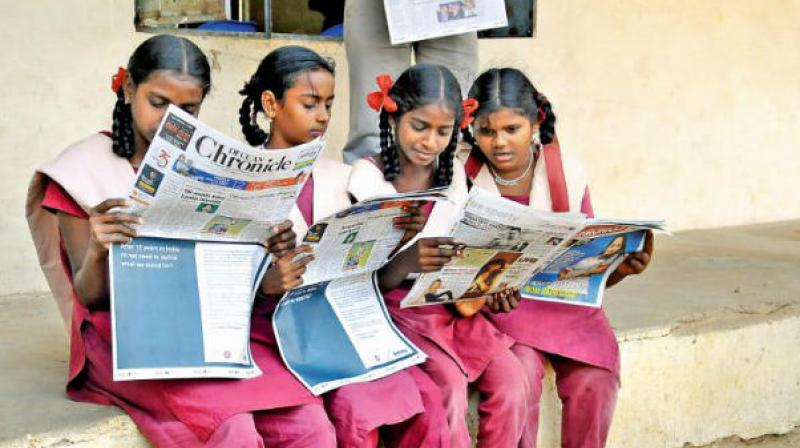Tamil Nadu needs better focus on adolescent healthcare
Technical expertise in adolescent health is still lacking in the country.

CHENNAI: Adolescents’ health lacks technical expertise as several challenges, including nutritional deficiencies, self-harm, mental health, substance abuse, early pregnancies and a large burden of non-communicable diseases are emerging in large numbers in adolescents in Tamil Nadu, say medicos. As per a nationwide report released by Lancet on Friday, technical expertise in adolescent health is still lacking in the country. More than 26 per cent girls are still married before 18 years of age and the teenage pregnancy continues to be 7.9 per cent. One-third of young women experience violence and 20 per cent experience mental health problems. Over 12 per cent tobacco and alcohol users in the country are in the age group 15-24 years.
Facts and figures of adolescent health in the state reveal a similar picture. Ninety-nine per cent of Tamil Nadu population consumes less than five servings of fruits and vegetables daily and 66 per cent of the population reported with low physical activity as per latest non-communicable disease surveillance report. As per the latest National Family Health Survey, more than 50 per cent adolescents and women are anaemic in the state.
Dr A.G. Ravindranath, secretary of Doctors’ Association for Social Equality, said that adolescent health and development needs a community-based approach for expected outcomes to improve immunisation, health and deal with anaemia. According to sources in government hospitals in Tamil Nadu, around 10 per cent deliveries happening in government hospitals on an average every day is early pregnancies, with most of the cases reported in rural areas.
“The cases of low birth weight infants, late neonatal deaths and stillbirth rates are higher in case of early emergencies. Teenage pregnancies posed serious health hazards to the mother as well as the child,” said Dr P. Vasanthamani, dean, Kilpauk Medical College. Mental health needs special attention in adolescents as they undergo various hormonal and physical changes, but they fail to receive mental health assistance, say psychologists. “We need age disaggregated data and transparent evaluations of our adolescent programmes. It is important to intervene early and continue with age-specific programming and important time to reach high-risk adolescents,” said Dr Sunil Mehra, executive director, MAMTA Health Institute for Mother and Child.
11th World Congress on adolescent health organised:
The 11th world congress on adolescent health titled 'Investing in Adolescent Health- the Future is now' was inaugurated by Manoj Jhalani, additional secretary and Mission Director, National Health Mission (NHM) on Friday.
“It is easier and cost-effective to bring in healthy behaviors early, rather than changing adolescents at a later stage and spending more on healthcare,” said Manoj Jhalani, at the 11th world congress on adolescent health.
He discussed the developments of Rashtriya Kishore Swasthya Karyakram launched in 2014 to improve adolescent health, at the programme.
India now has more than 7,000 adolescent-friendly health clinics with a case load of 73 people each month, 11.2 crore children have been administered weekly iron-folic acid tablets, he said.

